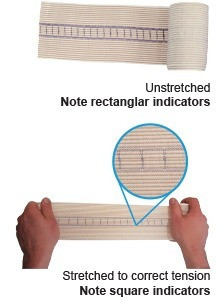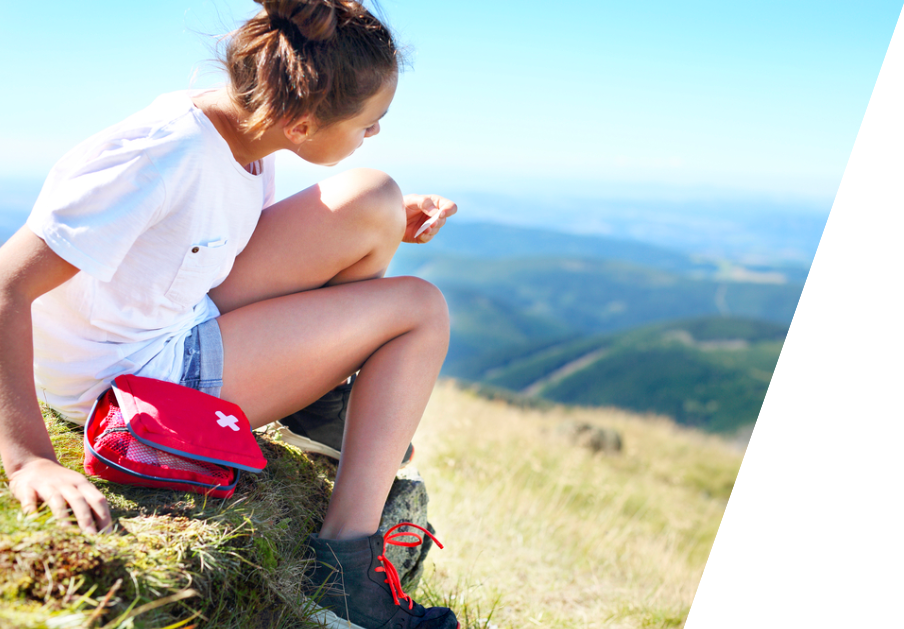
Hiking First Aid Kit and Camping First Aid Kit
When camping, it's crucial to have a well-prepared camping first aid kit on hand. Your camping first aid kit should be tailored to your specific needs, the number of campers, and the length and type of trip (e.g., car camping, backpacking, backcountry camping).
Here's a list of essential items to include in your hiking first aid kit:
Basic Supplies: Your camping first aid kit should contain fundamental supplies to address common injuries. This includes adhesive bandages in various sizes, sterile gauze pads, adhesive tape, antiseptic wipes or liquid for cleaning wounds, tweezers and scissors for handling materials, disposable gloves for hygiene, cotton balls or swabs, a thermometer to monitor body temperature, and safety pins for various uses.
Medications: Carry essential medications to address common health issues. Include pain relievers like aspirin, ibuprofen, or acetaminophen for pain and fever, antihistamines for allergies, anti-diarrheal medication, and any prescription medications required by members of your group. If anyone has severe allergies, ensure you have an EpiPen or other prescribed emergency medications readily available.
Topical Treatments: For skin-related issues include burn cream or gel for burn injuries, hydrocortisone cream to alleviate itching and rashes, and antibiotic ointment for preventing infection in wounds. Also, pack insect repellent to deter bugs and bite relief to soothe insect stings.
Wound Care: Have the necessary items to care for wounds and injuries. This should include a sterile saline solution for cleaning wounds, an irrigation syringe for more thorough cleaning, sterile dressings, adhesive strips for securing bandages, and an elastic bandage (such as an Ace bandage) for supporting sprained joints or securing dressings. Moleskin is useful for blister prevention and treatment.
Tools and Instruments: Important tools to include are a multi-tool or Swiss Army knife for various purposes, a CPR face shield or pocket mask for performing CPR safely, a headlamp or flashlight with extra batteries for low-light conditions, and a whistle for signalling in emergencies.
Personal Health Items: In the event that any members of your camping group require personal medications, make sure to bring an adequate supply, and consider bringing a first aid manual or instructions for reference.
Emergency Gear: Prepare for emergencies with essential gear. This may include a personal locator beacon (PLB) or satellite communicator for remote locations, fire starting tools or waterproof matches, a space blanket or emergency bivvy for warmth, and duct tape for quick repairs.
Additional Items for Backcountry Camping: If you're camping in remote areas, consider adding water purification tablets or a filter, a snakebite kit if venomous snakes are present, and splints for immobilizing fractured limbs. Tourniquets should be reserved for extreme circumstances.
Specialized Items: Tailor your kit based on individual needs. If you're camping with infants, bring baby supplies. For motion sickness, pack the appropriate medications. If allergies are a concern, include medications for bee stings or other allergic reactions.
Prescription Medications: If anyone in your camping group requires prescription medications, ensure you have an adequate supply readily available and communicate these needs to fellow campers.
Remember to periodically check and restock your first aid kit for hiking and camping to ensure that items have not expired and that you have all the necessary supplies. Additionally, it's a good practice to familiarize yourself with basic first aid procedures and know how to use the items in your kit. If you have any specific medical conditions or allergies within your camping group, communicate them to fellow campers and ensure you have the necessary medications or treatments readily available.
A well-prepared first aid kit is a must-have for camping and hiking in Australia, where the wilderness can be challenging and beautiful but also potentially hazardous. Be sure to regularly check and restock your first aid kit to ensure it remains a reliable resource in times of need, and consider purchasing supplies from a dedicated store like Tribe&Trail to meet the unique demands of the Australian outdoors.
Buy First Aid Kit for Camping and Hiking in Australia
Certainly, it's crucial to have a well-stocked first aid kit for camping and hiking in Australia. The importance of carrying a reliable first aid kit cannot be overstated, as it can be a literal lifesaver when you're in the great outdoors. Australia's diverse and often remote landscapes can pose various risks, from minor scrapes and insect bites to more serious injuries like sprains, fractures, or snakebites. Having a properly stocked first aid kit is essential to manage these situations effectively.
When you're out in the wilderness, you may not have immediate access to medical facilities or professionals. A well-prepared first aid kit is your first line of defence in providing initial care and reducing the severity of injuries until you can get proper medical help. It can help with wound cleaning and dressing, pain relief, treating allergies, and more.
One critical aspect of first aid kit ownership is to remember to restock it regularly. Many items in a first aid kit have expiration dates, and using outdated supplies can be ineffective or even harmful. Routine checks and replenishing of items ensure that your first aid kit is always ready for your outdoor adventures.
When it comes to buying first aid supplies in Australia, Tribe&Trail is a dedicated store for trail running and hiking, making it a convenient choice for outdoor enthusiasts. They likely offer a range of high-quality first aid kits and supplies tailored to the specific needs of hikers and campers in the Australian environment. You can trust that the products they offer are well-suited for the rugged terrains and diverse conditions you might encounter in Australia.


